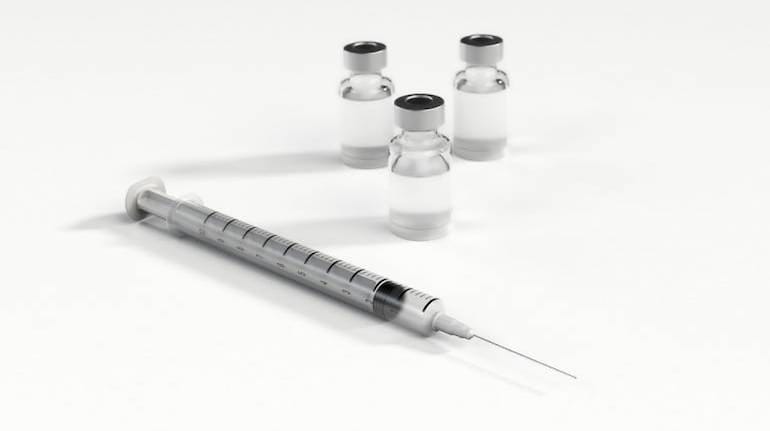



A government decision to offer free COVID-19 vaccine booster doses to all adults for 75 days from July 15 has stemmed from the poor uptake of precaution doses so far and is aimed at quick utilisation of vaccine doses nearing expiry, say officials.
On July 13, the Union government announced that from July 15 onwards, all those above 18 years of age will be eligible for free COVID-19 vaccine boosters at government vaccination centres.
Union health secretary Rajesh Bhushan is holding a meeting with state health secretaries on July 14 on ways to raise booster coverage through the free vaccination campaign.
So far, while healthcare and frontline workers and those above 60 years of age were permitted to receive free precaution doses at government hospitals, people aged 18-59 years only had the option of being vaccinated at private centres, for a fee.
“This move is targeted at raising the booster coverage widely as various Omicron subvariants have been triggering small surges in several parts of the country since January,” said a health ministry official.
“Though the number of hospitalisations and deaths have not increased significantly, it is definitely higher than the levels seen during the low phases.”
On July 14, for instance, the country reported 20,139 new coronavirus infections, the highest since February 19 this year, while the active cases have continued rising for 52 consecutive days.
The country also recorded 38 deaths, including 16 backlog fatalities, due to the infectious disease, with Maharashtra registering 10 deaths in a day.
The response to the precaution doses, however, has been dismal despite repeated attempts to bring more people to vaccination centres.
Recently, the Centre had also reduced the gap between the second and third COVID-19 vaccine doses, cutting it from the mandatory 9 months to 6 months.
Despite this, demand for precaution doses has remained low. Government data show that since their rollout in January, only 5.16 crore doses have been administered.
Figures shared by the health ministry also show that nearly 10 crore unutilised vaccine doses are available with states.
2-billion-mark publicity blitz hangingWhile the government has not missed any opportunity to boast of the high COVID-19 vaccination coverage it has achieved with over 90 percent of all adults in India now fully immunised, it had also planned to go big on publicity when the country hit the 2 billion COVID-19 vaccine shot mark.
With average daily vaccinations falling under 1.3 million doses, the consequent delay in the last 10 million jabs (India has administered 1.99 billion vaccine doses) may also have prompted the latest move.
Also read I Spotlight on high fertility states as India’s population projected to surge ahead of ChinaProtection against reinfectionGovernment officials, however, also stressed that the decision to make free boosters available was aimed at bringing down symptomatic infections significantly.
It’s an opinion most public health experts agree with.
“The longer the gap since the last vaccine dose or natural infection, the greater the risk of picking up another infection,” said Dr Rajeev Jayadevan, a clinician in Kerala and co-chair of the COVID-19 task force in the Indian Medical Association.
“This is especially true of Omicron sublineages, which are capable of causing reinfection even within one month. The booster dose raises neutralising antibodies for a few months, during which the likelihood of picking up an infection is lower.”
He added that this is especially helpful for those who have co-morbidity or increased risk from age, especially if they have taken their last dose long ago.
Jayadevan stressed that while two-dose primary vaccination, natural infection or both are good at reducing the risk of severe disease and death long-term, they are not enough to prevent another infection.
Heterologous boosters next?Dr Ishwar Gilada, an expert in infectious diseases, hailed the new announcement as an “excellent and timely decision”.
“Not only will this pave the way for booster doses for all, it will also save close to 12 crore vaccine doses from expiry,” he said.
Gilada also urged the government to start a heterologous (different vaccine) booster rather than using a homologous (same as earlier) dose.
Also read: Corbevax as booster dose after Covaxin, Covishield? Top panel on immunisation to discuss possibility“We already have data from COVID-19 vaccines such as Corbevax being used on top of Covishield and Covaxin” he said.
Government officials, too, confirmed that mixing of vaccines is set to be discussed by the top immunisation panel, National Technical Advisory Group on Immunisation, next week, and that the Centre will take into account its recommendations.
Discover the latest Business News, Sensex, and Nifty updates. Obtain Personal Finance insights, tax queries, and expert opinions on Moneycontrol or download the Moneycontrol App to stay updated!
Find the best of Al News in one place, specially curated for you every weekend.
Stay on top of the latest tech trends and biggest startup news.